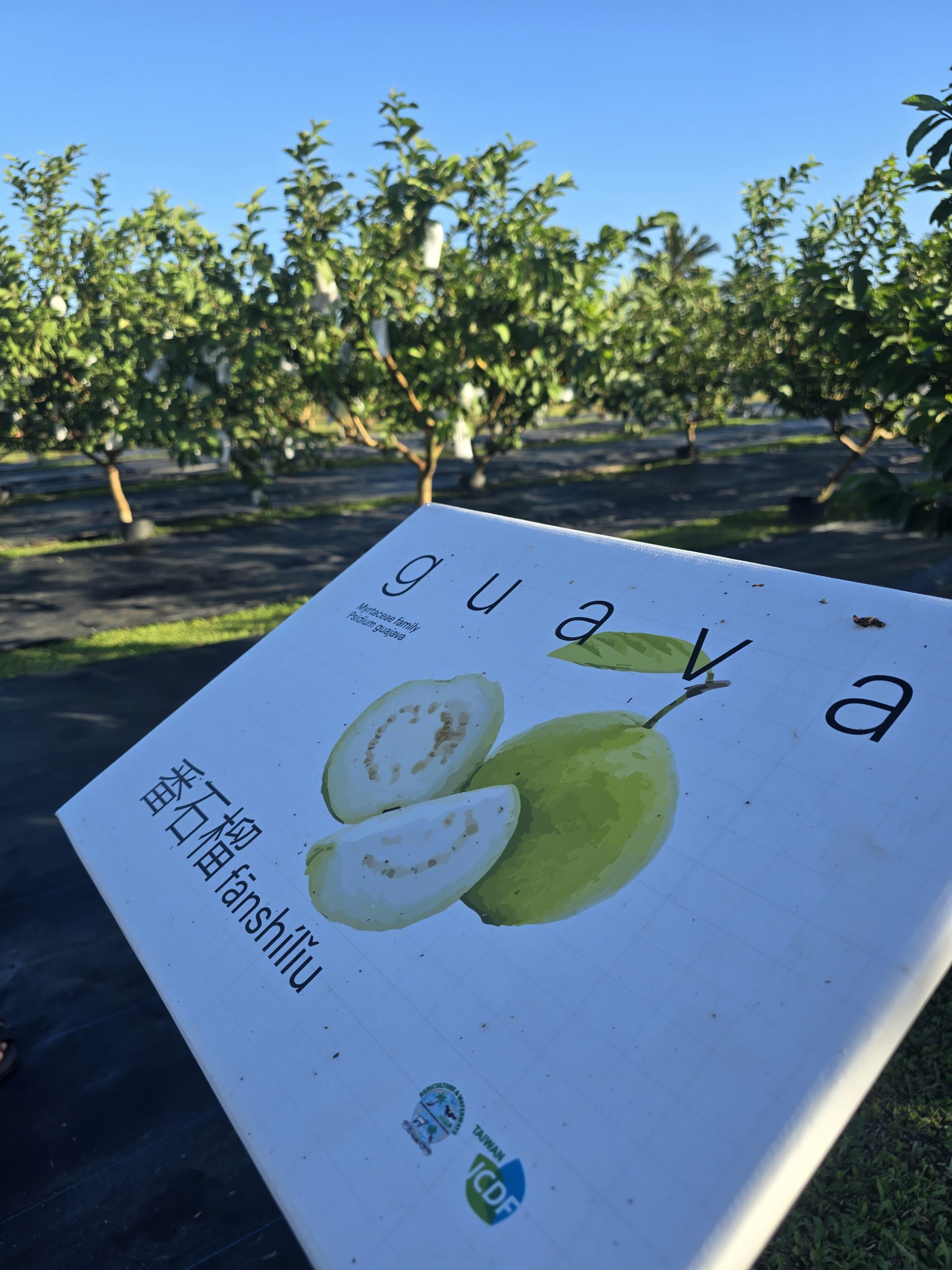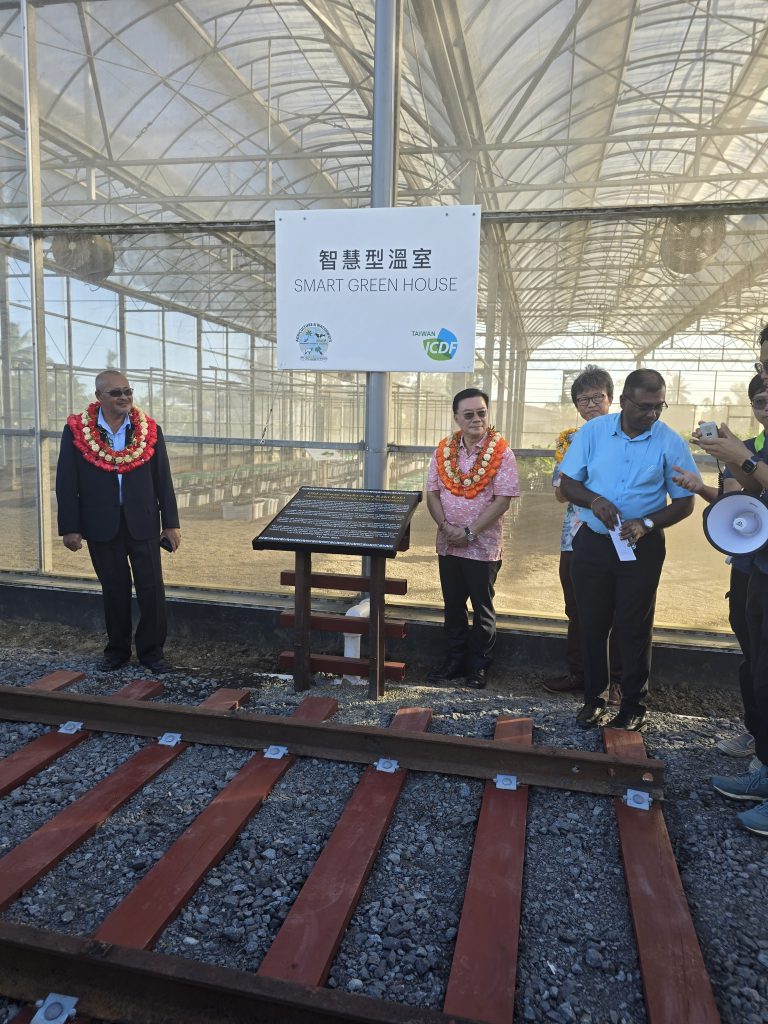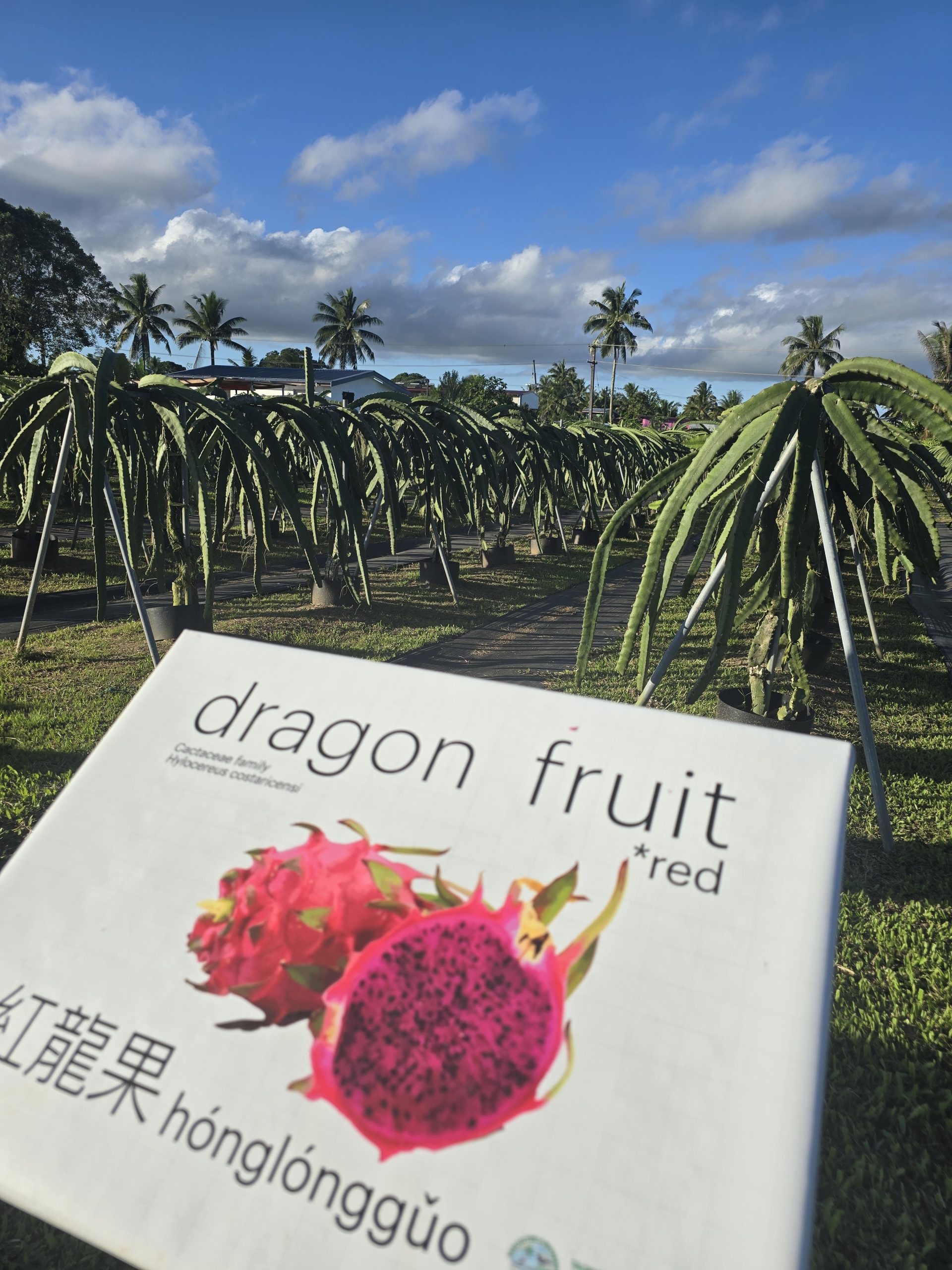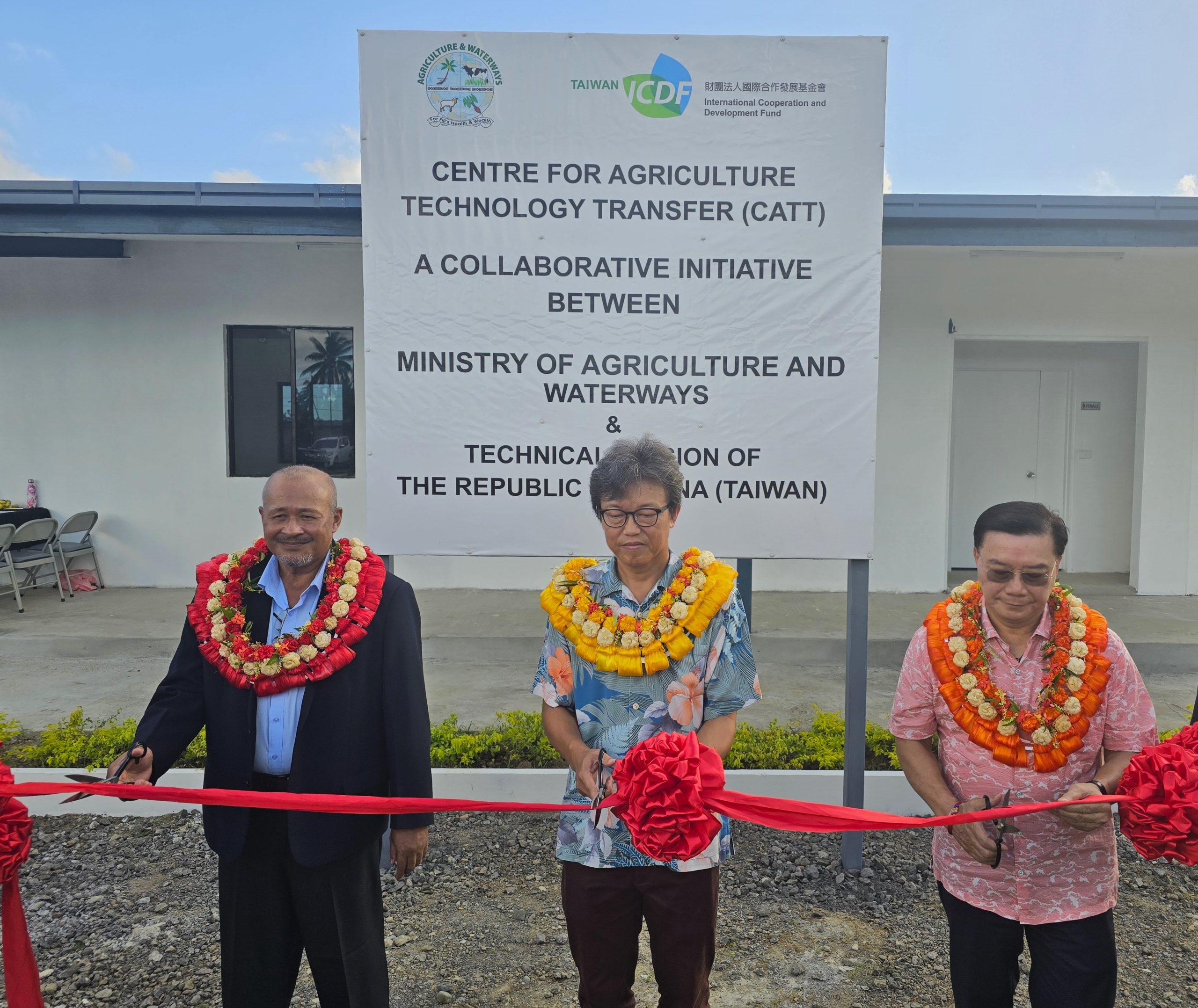Three years after its groundbreaking ceremony, the Centre for Agriculture Technology Transfer (CATT) officially opened in Nausori, leading a new era for Fiji’s agriculture.
Despite delays due to the pandemic, the centre is set to transform local farming practices, with a strong emphasis on reducing carbon emissions and fostering sustainable growth.
Dr Charles Li, Secretary-General of the Taiwan International Cooperation and Development Fund (ICDF) has played a crucial role in this initiative.
“Our collaboration with the Ministry of Agriculture and local farmers aims to not only increase production but also ensure that the methods we use are environmentally sustainable,” Dr Li said.

Dragon fruit and guavas are at the forefront of this agricultural transformation.
“The demand for dragon fruit is incredible,” he said.
“Through the collaboration between the Taiwan Technical Mission and local farmers, with assistance from the Ministry of Agriculture, we can produce high-quality and high-quantity dragon fruits to meet market demand.”
The journey hasn’t been without its challenges.
“Initially, there were doubts about mass production,” Dr Li highlights.
“But having worked with many countries in the Pacific and the Caribbean, I am confident in the potential here. These fruits are not only good for health but also economically beneficial for farmers.”
A key component of CATT’s strategy is the adoption of green smart house.
“We are implementing advanced technologies that Taiwan has developed over the years. This isn’t just about increasing yields but doing so in a way that reduces carbon emissions,” he said.
“For example, our work with guavas involves grafting techniques that produce high-quality fruit without the excessive use of resources.”

The centre’s investment, amounting to FJD$3 million (US$1.3 million), underscores the commitment to this cause.
“Despite the limited investment, the impact is significant and sustainable. We have education facilities, demonstration plots, and training classes to ensure that the knowledge is effectively transferred to local farmers.”
Jerry Liao, Taiwan ICDF Leader highlights the importance of cooperation with the local government and private sector.
“Our services are free for farmers. They can contact the Ministry of Agriculture to arrange visits and training sessions. The private sector has also shown great interest in supporting these initiatives, enhancing the impact of our projects.” Liao said.
The centre’s reach extends across Fiji.
“We have stations in different regions, each tailored to specific types of farming. For example, we have shrimp farming in Rakiraki and fruit farms in the east and west.”
Looking ahead, CATT plans to introduce new crops like oranges and mangoes.
“We are working on identifying new varieties and technologies that can be beneficial. It’s up to the local government to decide which crops to focus on, and we will provide the necessary support,” Liao said.
The commitment to sustainable agriculture is further reflected in the centre’s budget.
“Our annual budget ranges from US$600,000 to US$1 million, funded by the Taiwan ICDF and with in-kind contributions from the Ministry of Agriculture.”

Training programmes are a basis of CATT’s approach.
“We design various training programs that range from one day to a week, depending on the skills we want to impart. We can train 20 to 30 farmers at a time to ensure effective learning,” Liao explains.
Information about these programmes is disseminated through multiple channels, including media and social media.
“We want to make sure that farmers are aware of the opportunities available to them,” Liao said.
With its official opening on 14 June 2024, CATT is poised to cultivate a promising and sustainable future for agriculture in Fiji.














